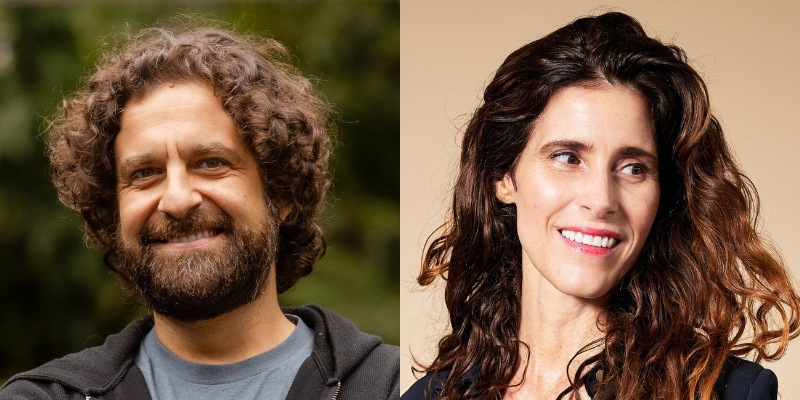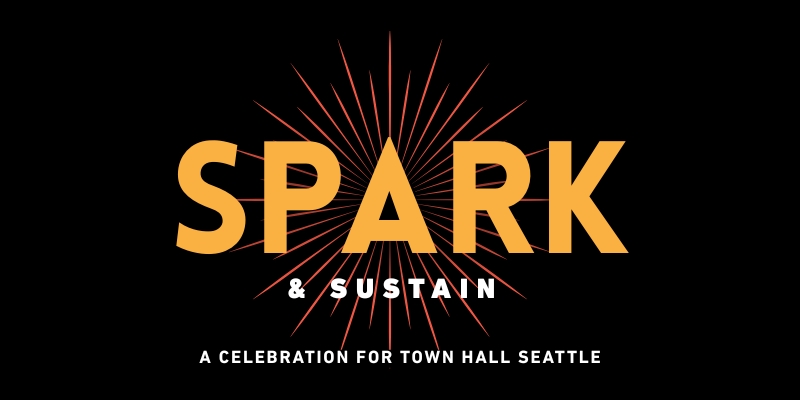Town Hall and KUOW collaborated for That’s Debatable: Technology Will Save Us at the Langston Hughes Performing Arts Institute on March 24. Huma Ali, a junior at Lake Washington High School and a TeenTix Press Corps editor, was in attendance:
When I first think of technology, I think of smartphones. But when I ponder it further, I realize that technology is infinitely more present and relevant than the entertainment device my smartphone largely serves as. Technology is in hospitals, roads, cars, and industrial machines. Technology is in my life, your life—even your dog’s life. It has enabled us, as humans, to advance our society.
And as such, when the statement “technology will save us,” is placed before me, I naturally agree. With access to the whole world at my fingertips, it’s confusing to think that it won’t save us. Because it will. Right?
It turns out that, prior to the debate, 52% of the attendees at KUOW and Town Hall’s event, That’s Debatable: Technology Will Save Us, thought so too.
In previous decades, it was widely believed that our means of transportation would, by now, be dominated by flying cars. While that isn’t the case, there is still a vast collection of innovative technologies that tinge our world—now, inventors can even construct impeccably life-like “people,” and are able to reproduce voices into customized “voice fonts”.
The evening’s main event took the form of a debate, which began with Elizabeth Scallon’s, head of WeWork Labs Northwest, opening statement arguing in favor of the assertion that technology will save us. Scallon laid out the drastic issues plaguing our communities: the need for 100,000 more doctors to accommodate increasing patients, lack of clean water, and broader, more controversial issues, like global warming. By highlighting these problems, Scallon introduced the idea that we could create solutions to them through technology. Alongside her, in agreement, was Vinay Narayan, Vice President of Product Management and Operations for HTC VIVE, who labeled technology as a “tool” and means of problem-solving.
After hearing the argument, it can be understood how technology will aid in saving us. But will it be the driving force, and the entirety, of what will save us?
Hanson Hosein, Director of UW’s Communication Leadership Program and President of HRH Media Group LLC, argued no, and subsequently pushed the question, “what do we need saving from?” Hosein asserted no matter what it is that we need saving from, technology isn’t going to do the saving for us, rather humans must save themselves. Hosein was not opposed to using technology as a tool—stating it was neither the problem not the solution, but an amplification of the existing human force.
Amy Webb, quantitative futurist and founder of the Future Today Institute, carried the conversation from such ideas, pointing out the lack of transparency of powerful tech companies in their work and intent. Webb focused on the fact that a minute few are making the decisions that affect the majority, and that this is the prominent issue within the technology industry—the lack of trust. How can technology save us if we are being left out of the discussion regarding it?
Before voting our final stance on whether technology is going to save us or not, audience members were prompted to discuss our thoughts with those sitting next to us. I spoke to a man working in the tech industry, who revealed some raw truths avoided by the debaters arguing yes: that no matter how rich one was, they would still lack the power, influence, and capabilities of major tech companies—so the idea that average individuals can create solutions to the world’s most prominent issues is a hoax.
The outcome: 72% of the audience members claim that technology will not save us.
Technology has enabled people to an extent in that they are able to use it in whatever way they’d like. As Hosein contended, technology amplifies the human force. So claiming that technology will save us as a blind absolute, may be the root of our downfall. In the end, only we can save ourselves.


